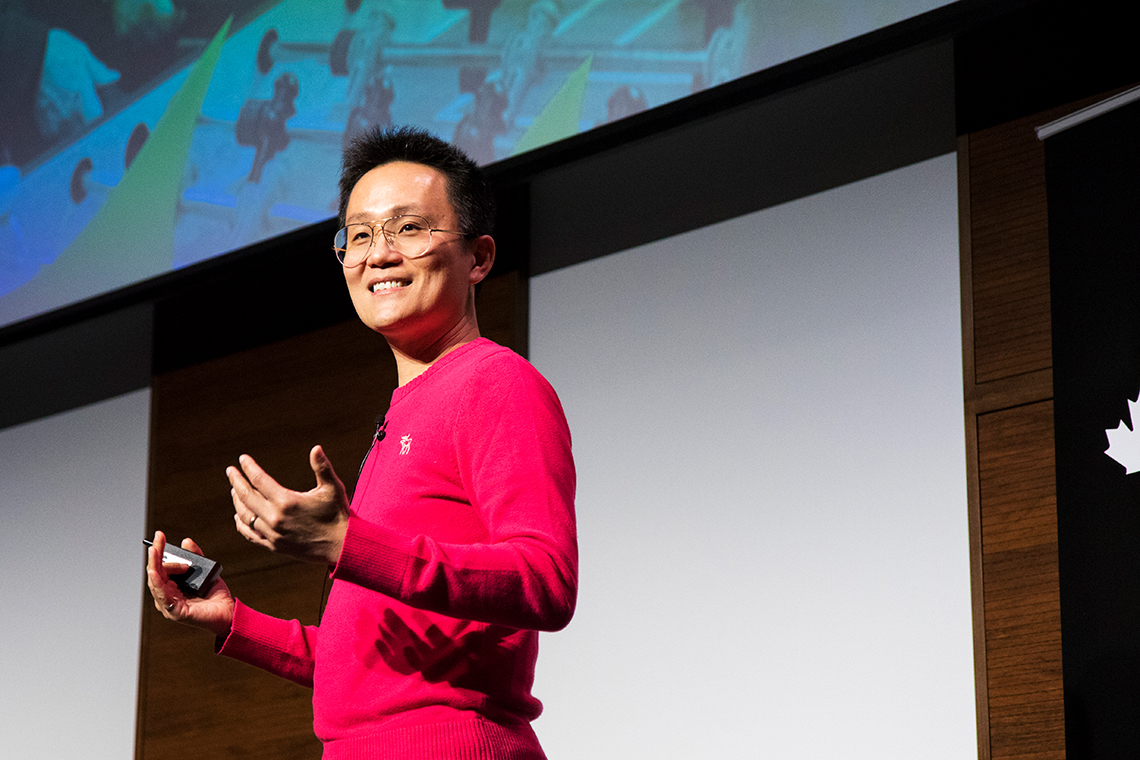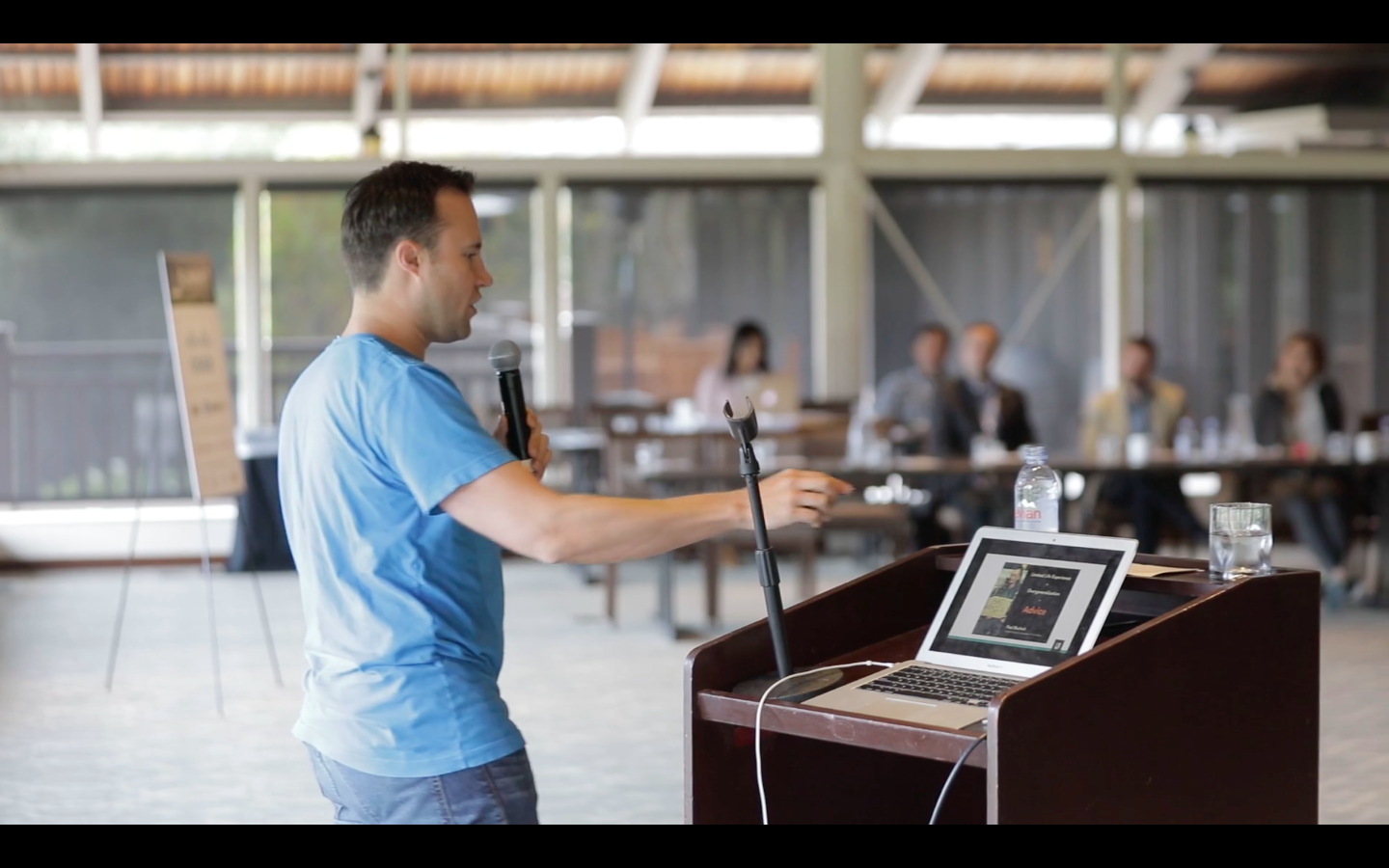
Wattpad was started by two immigrants, Ivan Yuen and Allen Lau, in Toronto, which is known to be the most diverse city in the world. As CEO & co-founder Allen Lau explained, having a multicultural focus and a global mindset were built into the company’s DNA.
This global vision has been a huge component of the company’s success which has more than 90 million monthly users from all over the world and is in the middle of a $600 million acquisition by the South Korean conglomerate Naver.
We spoke to co-founder Allen Lau about how to have a global mindset when founding a startup.
Hear more insights from Allen during his fireside chat with the Founders Network. He’ll offer reflections on his founder’s journey, such as:
- Navigating early, explosive growth
- How to have a global mindset when founding a startup
- The evolution from social storytelling to becoming a global entertainment company
- How they structured their team early on to reflect the market they wanted to capture
- What comes next after an acquisition
- Plus anything you’d like to ask
Register as a guest or find out if you qualify for full membership.
“Founders who grew up in a single country and haven’t had a broad exposure to another culture or language have to make that constant conscious decision how to grow the skillset and, most importantly, how to find diverse… Share on XClick here to watch the ENTIRE video
or explore our entire event video library
Allen Lau’s tips on building a global company
1. Your Team Needs to Reflect Your Intentions
For two immigrant founders, having a multicultural mindset came naturally. This isn’t always the case.
“Founders who grew up in a single country and haven’t had a broad exposure to another culture or language have to make that constant conscious decision how to grow the skillset and, most importantly, how to find diverse perspectives on different things.”
Start by building a diverse team.
Being founded in Toronto helped the co-founders build a diverse team from the get-go. “When you walk on the street, it’s like the United Nations. That DNA is naturally built into the company,” Allen explained.
But it was also a very intentional choice. “Because we have so many users in different parts of the world, we need our team to resemble that, as well.” Wattpad currently has around 200 employees, 50% of which are female and 40% are people of color. Much of Wattpad’s team is also bilingual.
And (when you have them) leverage your users, as well.
To obtain a diverse array of perspectives that reflect the company’s users, Wattpad maintains a team of ambassadors around the world. Some of these ambassadors start out as volunteers and end up becoming employees. For instance, their Spanish content specialist started off as an ambassador and now works full-time for Wattpad while living in Venezuela.
“A global mindset has to be very top-down. If we want to address the global market, but the only thing that the founder talks about is the US market, then it trickles down that message even though it might be unintentional.” -… Share on X
2. Treat All Markets Equally
“One mistake that a lot of companies make, which we try to avoid as much as possible, is to have a US team or an English team, and then the rest of the world. Once you do that, you automatically have a second-class citizen syndrome.”
Part of this is a structural issue — making sure that all markets have equal places at the company’s leadership table. But it has to start with the founder.
Wattpad has a strong presence in Latin America, Indonesia, and the Philippines — places that Allen had little knowledge of before growing his startup. He explained that he spent time understanding the differences of the cultures in order to better support the markets. For instance, conducting research into the types of content that people are interested in and engaging within different countries and regions.
“This type of mindset has to be very top-down. If we want to address the global market, but the only thing that the founder talks about is the US market, then it trickles down that message even though it might be unintentional.”
The entire company supporting any given country or region needs to have that cultural context and equitable mindset. “Not just the founder, but the entire team needs those [cultural] perspectives and touchpoints. Without that [on-the-ground] insight, context, and perspective, it would be very hard to build a truly global product.”
“The best mentors and advisors share their experiences, rather than tell you what to do. And when you hear these experiences, you can apply the lessons learned intelligently to your own business.” - @allenlau Share on X
3. There’s Not a Uniform Path To Going Global (Or Whether You Should)
If you make the decision to be a global company, Allen explained, it becomes the company’s North Star. “Having that North Star is always helpful. It aligns everyone in a company. But the strategy to get there — would be company-specific. Does it mean you climb that mountain right away? Does it mean that you climb that mountain two years from now? I don’t think we can generalize it. If the North Star is the summit, there are multiple paths to get to the summit.”
Part of the decision about whether you should go global or when is recognizing that it can add a ton of complications (or at least new decisions to make) around your product and your go-to-market strategy.
“Wattpad was able to go global pretty much from day one, and recognizing that opportunity became a forcing function for us to think about. If we are not only addressing Canada or North America, what do we need to do differently? And because of that, the constant questions in our mind were subtle decisions like, ‘Should we support this language?’ ‘Should we make choosing language more subtle or more obvious?’ They were very tactical decisions.”
Wattpad was able to think globally so quickly for several reasons. Because of the company’s co-founders and city of origin, the platform supported several languages from the start. And because their industry doesn’t have regulatory restrictions, it was easier to promote the product across country borders.
For certain sectors, such as fintech or healthtech, branching out into new countries will be much more difficult. It might not be in the company’s best interest to expand outward, or it may be possible only after you reach a certain stage.
For all of these reasons, when considering what path to take, Allen explained that you should be careful of whose advice you trust. Many advice-givers will share their opinions based on lessons they learned under very different circumstances that might not fit your own.
“The best mentors and advisors share their experiences, rather than tell you what to do. And when you hear these experiences, you can apply the lessons learned intelligently to your own business.”
To learn more about building a global company, see if you qualify for membership and check out the webinar from June 3.






